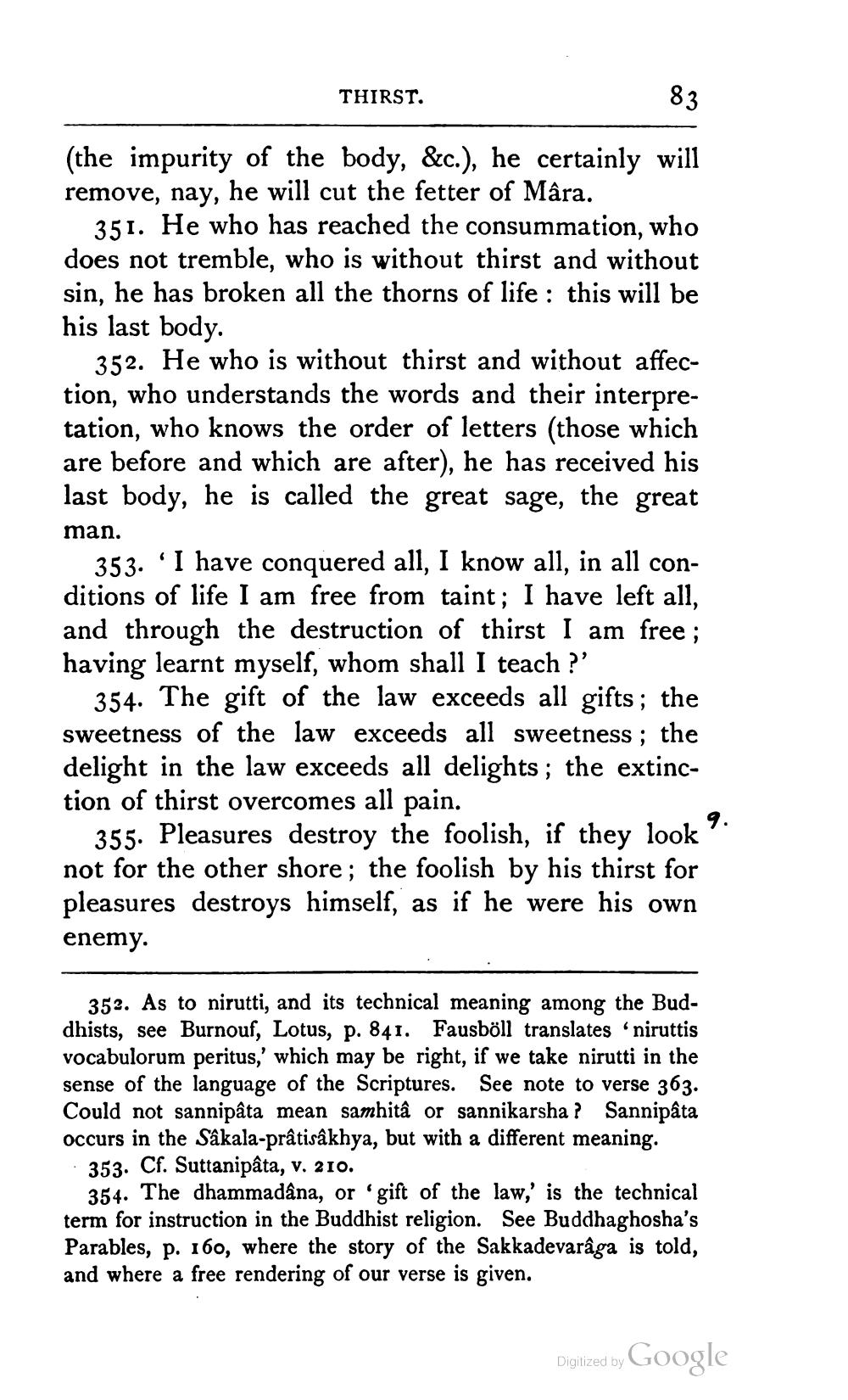________________
THIRST.
83
(the impurity of the body, &c.), he certainly will remove, nay, he will cut the fetter of Mâra.
351. He who has reached the consummation, who does not tremble, who is without thirst and without sin, he has broken all the thorns of life : this will be his last body.
352. He who is without thirst and without affection, who understands the words and their interpretation, who knows the order of letters (those which are before and which are after), he has received his last body, he is called the great sage, the great man.
353. 'I have conquered all, I know all, in all conditions of life I am free from taint; I have left all, and through the destruction of thirst I am free; having learnt myself, whom shall I teach ?
354. The gift of the law exceeds all gifts; the sweetness of the law exceeds all sweetness; the delight in the law exceeds all delights; the extinction of thirst overcomes all pain.
355. Pleasures destroy the foolish, if they look not for the other shore; the foolish by his thirst for pleasures destroys himself, as if he were his own enemy.
352. As to nirutti, and its technical meaning among the Buddhists, see Burnouf, Lotus, p. 841. Fausböll translates niruttis vocabulorum peritus,' which may be right, if we take nirutti in the sense of the language of the Scriptures. See note to verse 363. Could not sannipata mean samhitâ or sannikarsha? Sannipata occurs in the Sâkala-prâtisâkhya, but with a different meaning. · 353. Cf. Suttanipâta, v. 210.
354. The dhammadâna, or gift of the law,' is the technical term for instruction in the Buddhist religion. See Buddhaghosha's Parables, p. 160, where the story of the Sakkadevaraga is told, and where a free rendering of our verse is given.
Digitized by Google




